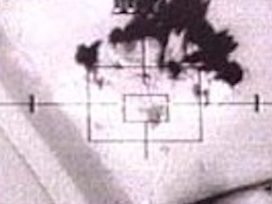
Ukraine faces its greatest diplomatic challenge yet, as the Trump administration succumbs to disinformation and blames them for the Russian aggression. How can they navigate the storm?
What’s in a word, a term, a meme, a full-blown narrative? At a moment of Russian unilateral ceasefire for the Orthodox Christmas, considered by many Ukrainians as hypocritical, Eurozine authors take an investigative look at the rhetoric of war and Russia’s victim narrative.
Seemingly all of a sudden, the narrative shifted: war was no longer escalating in late 2022; its end had been envisaged. Fighting audience fatigue was given a psychologically uplifting twist: despite being clearly ongoing, Russia’s war in Ukraine started to be described by those enduring daily attacks as almost over.
The power of words is strong and how we choose to portray the course of events matters. Could this optimistic narrative even potentially have an impact on war becoming peace sooner in Ukraine? Take no more than a mini critical step back and this question reveals itself to be written from the privileged, safe distance that this new wartime rhetoric is understandably appealing to.
‘Since the beginning of the full-fledged aggression that broke out on 24 February 2022, the Ukrainian cultural community has been actively looking for a solution to the problem of ‘compulsive reconciliation’, trying to tread the fine and sometimes dangerous line between preserving one’s dignity and the need to retain the interest and attention of western cultural institutions, media and platforms where one can talk about the war in Ukraine,’ writes Kateryna Botanova.
The reconciliation Botanova mentions, evident since 2014 post-Euromaidan, is fraught with well-meaning individuals and organizations hastily bringing Ukrainian and Russian representatives together to discuss cultural bridges. She advocates for decolonizing culture rather than its instrumentalization: ‘By resisting imposed pacification and forced reconciliation, Ukrainian artists are reclaiming the power of arts to bear witness, to preserve reality, to be present. … art is not about understanding, and certainly not understanding between the aggressor and those who are defend their right to life and existence.’
In his overview of Russian aggression in Ukraine, Philipp Ther asserts that the terms we give war, even the order in which we identify those involved, is critical: ‘Western media mostly use the term ‘War in Ukraine’ (or German media ‘Ukraine-Krieg’), which is just as misleading as “Ukraine conflict”,’ he writes. ‘From the very beginning, this was a Russian-Ukrainian conflict – and a Russian-Ukrainian war. This conceptual clarity matters so much because it signifies that the primary problem is not Ukraine but Russia.’
Repetitively used cultural descriptors, even when misleading, tend to stick. Irina Borogan and Andrei Soldatov address Russian culture’s entrenched victim narrative, encompassing German crusaders in the thirteenth century to NATO today: ‘Out of this very selective history, a remarkable narrative emerged: that Russia was never on the offensive. On the contrary, the country was always under attack, defending itself from the East and, more importantly, from the West.’
They identify the perils of teaching such a biased narrative from a young age: ‘The invasion of Ukraine clearly shows that something must be done in Russia to break the tradition of historical falsification in school textbooks. Only then will future generations of Russians be able to see a different past – the necessary condition for building a different future.’
Debatable cultural memes, whether those freshly in use that appear subtle and easily rectifiable (such as how we nominate a war), or those long-held perceptions that seem blatant yet insurmountable (such as deep-rooted national identity), need questioning and requestioning. We owe it to those necessarily battling the fickle turnover of much media reporting in the hope of maintaining the currency of their appeal when in dire need.
Published 4 January 2023
Original in English
First published by Eurozine
© Eurozine
PDF/PRINTSubscribe to know what’s worth thinking about.

Ukraine faces its greatest diplomatic challenge yet, as the Trump administration succumbs to disinformation and blames them for the Russian aggression. How can they navigate the storm?

From regular TV coverage to constant online streaming, war imagery is so profuse it makes for compulsive viewing that appears to have already reached a pinnacle of disassociation. Meanwhile, the imaging technologies behind war have developed to the point of supposedly ‘predicting’ violence, threatening to occupy the future. And what is left of the real world in their wake?